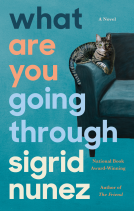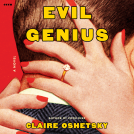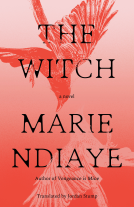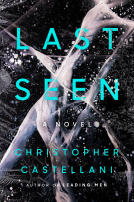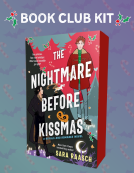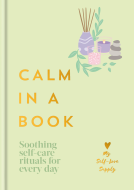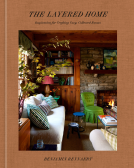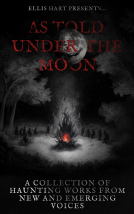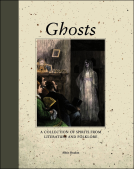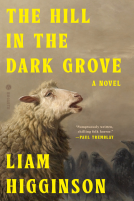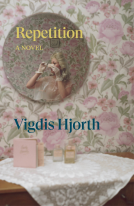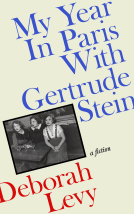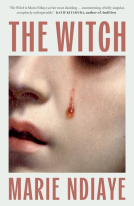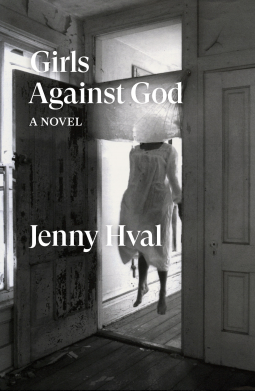
Girls Against God
A Novel
by Jenny Hval
This title was previously available on NetGalley and is now archived.
Send NetGalley books directly to your Kindle or Kindle app
1
To read on a Kindle or Kindle app, please add kindle@netgalley.com as an approved email address to receive files in your Amazon account. Click here for step-by-step instructions.
2
Also find your Kindle email address within your Amazon account, and enter it here.
Pub Date Oct 06 2020 | Archive Date Oct 06 2020
Verso Books (US) | Verso Fiction
Talking about this book? Use #GirlsAgainstGod #NetGalley. More hashtag tips!
Description
Welcome to 1990s Norway. White picket fences run in neat rows and Christian conservatism runs deep. But as the Artist considers her work, things start stirring themselves up. In a corner of Oslo a coven of witches begin cooking up some curses. A time-travelling Edvard Munch arrives in town to join a death metal band, closely pursued by the teenaged subject of his painting Puberty, who has murder on her mind. Meanwhile, out deep in the forest, a group of school girls get very lost and things get very strange. And awful things happen in aspic.
Jenny Hval's latest novel is a radical fusion of queer feminist theory and experimental horror, and a unique treatise on magic, writing and art.
Advance Praise
“In Paradise Rot, Jenny Hval creates a parallel world that’s familiar but subtly skewed. As intriguing and impressive a novelist as she is a musician, Hval is a master of quiet horror and wonder.”
—Chris Kraus, author of I Love Dick
“Every page of Paradise Rot contains something in it that burrows deep inside you. Much like Hval’s musical output, the book is almost uncomfortably intimate, the kind of penetrating encounter that will make you uncontrollably shudder as your body is plunged into the sensory world that Hval has created. It’s an uncanny and yet deeply moving reading experience, one that Hval uses to explore the complexities of queer desire and human enmeshment in our physical surroundings.”
—Nylon
“Hval is an expert at creating and sustaining atmospherics across genres, and Paradise Rot is no exception. Paradise Rot is an odd microcosm inside an ordinary world … It is, in many ways, a novel about finding and then choosing a self; it also shows the pull of unexpected queer desire and the dismantling of boundaries that draw requires. But most of all, in the way that a microscope reveals an unsettling truth about the familiar (that it’s teeming with life you never expected), Paradise Rot is hard to forget.”
—Pitchfork
“Hval’s curiosity is more than simple pleasure in perversity: It’s meant to defile the idea of women’s bodies as pristine and plush … and reshape it into something more dreadfully real. Maybe more revolutionary than that transfiguration is her disemboweling of desire itself, unraveling it to its fearsome, primal state, and exploring the strangeness of how sexuality can alienate one from oneself; how feelings of mistrust come about when desire is new, queer and unreliable.”
—NPR
“Strange and lyrical … Hval’s writing is surreal and rich with the grotesque banalities of human existence.”
—Publishers Weekly
“With the release of the newly translated Paradise Rot, we can experience her artistic evolution beyond the shape of a timeline, as a series of challenging examinations melting and bending in on themselves … Listening to—or now reading—her work feels like getting jettisoned into an underwater reality that fantastically mirrors our own. It would be entirely terrifying, if exploring it weren’t so much fun.”
—Ann-Derrick Gaillot, Nation
“The themes of alienation, queerness, and the unsettling nature of desire align Hval with modern mainstays like Chris Kraus, Ottessa Moshfegh, and Maggie Nelson.”
—Pitchfork
“Hval’s surreal debut riffs on the same layered intricacies as her music, transcending simple categorisation to create a dreamy landscape both separate and a part of what we recognise as reality.”
—Stinging Fly
Available Editions
| EDITION | Other Format |
| ISBN | 9781788738958 |
| PRICE | $19.95 (USD) |
| PAGES | 240 |
Average rating from 28 members
Featured Reviews
 Reviewer 627729
Reviewer 627729
Great book! Very well written. The character hates everything but the author makes up for it later.. the synopsis is what drew me to the book!
I want to thank NetGalley, Verso Books (US), and author Jenny Hval for providing me with an ARC of this novel!
The cover of Girls Against God drew me in, and I was not to be disappointed! We find ourselves in Norway, circa the nineties. White picket fences and Christian conservatism is the norm. As the Artist considers her works, things start to happen. A coven of witches begin casting some curses. A time traveler arrives in town to join a death metal band. Puberty has murder on her mind. While this is all happening, a group of girls deep within the forest find themselves lost, and things become very strange.
This was SUCH a strange read. You want to hate these characters, but you can’t. If you love strange and unthinkable, this novel is for you. I enjoyed the author’s writing immensely. I love that she wasn’t afraid to explore the dark and the different.
Thank you again to those named above for the opportunity to read and review this novel!
 Reviewer 499835
Reviewer 499835
I was exhilarated by this work. I'm not sure what it is. Is it a poem? An essay? A barbaric yawp? I moved forward through the text cautiously, not knowing how to protect myself from my own wild thoughts bouncing off the words on the page. I pretty much loved it. I was confused by it. I was annoyingly disturbed by questions about whether the hard-breaks in the text were meant to be there or were some artifact of me reading this book in digital ARC form, and on a first-gen IPad.
The publisher's description says "the narrative, the essayistic and the magical is organically woven together into a literary text that both genre-wise and by virtue of its content refuses to be boxed in" and that sentence really sums up what I think about this novel, at this moment--because this description from the publisher is irksomely UNGRAMMATICAL (please, dear verso, its 'the narrative, the essayistic and the magical _ARE_ organically woven together) and yet, with work on my part, the publisher's description also seems to mean something exactly like this novel means.
I feel like I was in communion with the semi-raw/half-baked thinking of a very interesting human being who is Jenny Hval.
Good. Try it. I'm going to buy it in book form when it's available so I can at least be sure where the author means to make her line breaks vs. being continuously bemused about whether there is any meaning at all to them, as they appeared in the ARC.
 Ellen V, Librarian
Ellen V, Librarian
Reading the synopsis, and half knowing Jenny Hval as a performance artist, I was interested in Girls Against God. But it's clearly not for me. Although I found Hval to be an extraordinary writer, I was totally lost from page 1. There are lengthy meditations on black metal, religion, gender, language, but its surrealism and its total lack of a plot made it hard for me to connect.
There is an audience for this kind of writing, but unfortunately, it doesn't include me.
Thank you to Netgalley and Verso Books (US) for the ARC in exchange for an honest review. #netgalley #JennyHval #GirlsAgainstGod
This book is great for fans of Jenny Hval. Like her music, her writing is hypnotic, strange, genre-bending with edgy twists and turns. This book is cinematic in feel (and cinema is mentioned frequently) and atmospheric. Admittedly, I did not finish reading this - mostly because there's other voices and viewpoints I'm more drawn to right now.
 Bookseller 545305
Bookseller 545305
I feel SEEN.
I have never listened to Jenny Hval's music and know very little about black metal culture per-se, though I was a punk kid in the 90s so I understood viscerally what she was talking about. Don't be scared off if you don't know/care about black metal. It is not about that. It is about hating God, which is to say hating the patriarchal God, which is to say hating what men do to women in God's name.
The book itself is simultaneously a fever dream, a stream of consciousness, and a rigorously researched feminist manifesto. I have never read anything like this. The protagonist is writing a screenplay based on her friends, her band, her coven, who may or may not be real. They do magic, which may or may not be real. They revel in the forbidden without any gratuitous violence, without any sadism, without any sexualization. It is truly a feminist gem.
Now, I would NOT recommend it to most people. This book is WEIRD. It doesn't have a straight-forward narrative. The phrase "I hate God" is mentioned probably a hundred times. I would give this book to a teenage girl wearing all black (yeah-yeah-yeah, it's 18+) but not her suburban mom. It's not a "book that everyone should read." And it's okay. It's a book that I needed to read, and I book that I will go back to.
Thanks to Netgalley and VERSO, one the best publishers ever, for this fantastic novel!
“Hatred is my imaginary world, my pleasure dome.”
The girl in question hates the south of Norway, especially the southern accent. She hates God and has only one big like: black metal. Sounds like a charming character, right? A bright person whom you love reading about? Why read a book about someone’s hatred? Because the triangle is always expanding and the third point (whatever your fantasy comes up with) makes the others tremble. I can see your confusion…
Girls Against God is a book about bonding. The narrator feels a lot of hatred and is endowed with a very rich fantasy. She sees magic as the same alchemical reaction that transforms hatred to a new or strange form of love. She does feel hope, even though it’s through hatred. This gives you another perspective on what can give someone hope. The girl is looking for others like her – other people that hate – but concludes that she is alone in her hatred. Her loneliness makes her crave for a bond.
Jenny Hval created something that’s different. In Girls Against God she combines the magical and lively fantasies with linguistics and technology. The story is all over the place, as if the author, like the reader, was curious about the ending of the chapters she was working on. It has all the ingredients of a book I should love. The story often brings a smile to my face because I appreciate the parallels drawn.
I did enjoy thinking about some of the connections Jenny Hval presents to us through the thoughts of the girl. At the same time, I didn’t enjoy reading the book as a whole. Except maybe the last part of the book: the ‘Film’ part would have been brilliant as a short story. But before I got there I often wished that the book was finished and that I could start another one. It just was not pleasant to read from front to cover because the story is all over the place. Girls Against God is an interesting book to read, but it is not a book that I would recommend.
I jotted down some unrelated thoughts that I will share with you in the same unstructured manner as the girl does. If this piques your interest, then this book might be for you after all.
1) An illusion can be blown to bits by art’s insignificant explosions. After your reality has been ripped to shreds by this blast, there is a long echo. This is the silence that brings opportunity if you can overcome the shock.
2) Production is active, reproduction is passive.
3) The witch’s den is a breeding ground for feces, blood, and sexual fantasies. The result: an egg.
4) Maybe I didn’t enjoy the book enough because I live even further south than South Norway.
5) On a more personal note: I find the musings about the silent h rather funny as it brings back memories of my bachelor thesis about the ‘hidden’ h in the Middlewelsh subjunctive.
6) Would I rather have an imaginary search engine or a magical computer with the internet resembling the human body?
 Book Trade Professional 711403
Book Trade Professional 711403
Jenny Hval’s marvelous strangeness shines in this novel. She twists and turns and molts throughout the novel in a way that is unsurprising to listeners of her music, but still marvelous to watch and reckon with. Definitely strongly recommend for anyone who likes surreal or magical elements in their fiction.
This novel is intense. It's hardcore and should be approached with that knowledge. The novel follows the Artist. A girl consumed with HATE. Hate for the Christian evangelicals that smother her in her home in the south of Norway. Hate for the hypocrisies of society and history. Hate for the black metal movement that sought to destroy rather than build. Hate for the way she is forbidden to hate. The novel functions more like a series of musings rather than a plot. Technically the novel follows her at different points in her life from school to grad school to beyond but the focus is not so much what happens but how she feels about what happens. Still, Hval constructs a wonderfully angry little girl and who believably grows and changes while still hating with everything she has. This hate-filled girl is not the cool polished character we see in mainstream media, not the edgy effortlessly cool kid, she is rough around the edges, she is disgusting and messy and horrendous which was great fun to read and engage with. Like I said it is an intense novel. There were sections I absolutely loved. Her disavowal of God and the way the author connects the notions of God and mortal to artist and muse (and even author and character) was amazing. The way Hval used language to make her points was also fantastic to read, especially her fixation on the letter "h" which is silent in white but bold and outspoken in both Hate and Hope. The character obsesses with liberating the subject of one of Munch's paintings, waxing political about the role of women in art history and society at large. These were my favourite parts. But, as I said, this is a hardcore novel. If you enjoy the more extreme side of neo-avant-garde, think Marina Abramović's The Lips of Thomas (1975) or Valie Exports's Action Pants: Genital Panic (1969), then this novel will be right up your street. The over-reliance on faecal matter, blood and other "shocking" things were a bit much for me though. I also felt some of the messages were more confused than others, the section in Japan felt more like orientalism, to be honest. The strongest aspects of the novel were her discussions of patriarchy and the history of witchcraft which were insightful and artfully done, but be prepared for the lurid intensity of the rest of it.
 Reviewer 104618
Reviewer 104618
This was a fascinating book. An ode to the riotous anger of women and girls against the patriarchy. I loved the writing (and translation) and although I did not always find myself entirely connected the main narrative (or narrator) I was hooked enough to read more by Hval in the future.
 Paul F, Reviewer
Paul F, Reviewer
In an early version of the film I’m writing, the girl from Puberty is the main character in the story. She’s travelling in a time machine from the 1890s, her own time, to our time. There she’s going to look for Edvard Munch, to crush him, as revenge for painting her. In the story’s opening we’re told that Munch has already travelled through that same time machine, to pursue his dream of playing in a popular black metal band. “
Translated by Marjam Idriss from Jenny Hval’s Norwegian original, Girls Against God is from Verso Books, “the largest independent, radical publishing house in the English-speaking world” and this powerful novel justifies that reputation.
The first person narrator of the novel opens her story, or perhaps her manifesto may be a better term, with:
“It’s 1990 , and I’m the Gloomiest Child Queen. I hate God. It feels primitive and pitiful to say it, but I’m a primitive and pitiful person. The screen in front of me shows images from 1990: images of pine trees; the tops, grey sky. The video flickers and the camera sways across a pixelated digital universe. A boy, possibly Nocturno Culto, walks through the forest to the sound of brutal guitar riffs.
…
That year, while Nocturno Culto and his band still play thrash and haven’t really figured out black metal, I hate my way through every primary school classroom, and the teachers’ thick southern Norwegian accent. I refuse to adopt it. I hate its sombre tone, fit only for sermons and admonitions, and southern Norwegians hardly ever utter anything else.”
Nocturno Culto (real name Ted Skjellum) being one of the real-life founders of the Norwegian band Darkthrone, part of the early 1990s Norwegian death metal scene that infamously ended in 1993-4 with some musicians in jail for burning churches, two for murder (one of a rival band member) and others veering into Neo-Nazism. Darkthrone themselves largely avoided much of the controversy, although their album Transilvanian Hunger did have some unfortunate promotional material (https://en.wikipedia.org/wiki/Transilvanian_Hunger), including outsourcing the lyrics to four of the songs to Varg Vikernes, one of those later convicted of murder.
The opening lyrics of the song Over Fjell Og Gjennom Torner feature in the novel in one of the imagined film sequences (see below), which in the translation read:
“Over peaks and through the thickets
Through this evil murky wood
Die like a warrior, head on a tree
Slash the flesh. Needles skin deep. “
(see https://www.youtube.com/watch?v=l1eMYS7exIk for the original – Hval’s, who is also a singer, own music is rather different in style https://www.youtube.com/watch?v=vXLc37lOE3o)
The narrator was too young (and the wrong gender) to be part of this scene, but “grew up in southern Norway’s white Scandinavian paradise: white walls, white fresh snow, white painted laminate and white chipboards, white flagpoles and white chalk lines on the blackboard, white cheese and white fish, milk, fish pudding, fish gratin and fish balls in white sauce, white pages in books, white pills in pill boxes, white roll-ups, platinum-blond hair, white brides and white doctors’ coats, meringue and cream cake, Christian virgins from Jesus Revolution with white wooden crosses, Christian grunge, listen, the music sounds like regular grunge, if you just forget about the lyrics, irony, nothing means anything, boys from White Revolution at summer camp, girls who think it’s fine that the boys are racists because they’re hot and because boys will be boys, boys and their Nazi punk songs, listen to this track, the lyrics are so distorted you can’t hear it anyway, listen , the melody’s great, you girls are gonna love it, it’s got acoustic guitar. Sugar and salt are the only spices. Sugar and salt look exactly the same. White revolution and Jesus Revolution, Nazi punk and evangelist grunge, swastikas and purity rings. midmorning gruel, pimple pus, egg whites, cream of wheat, semen.”
Rebelling against the social conservatism of the region she ends up in a black metal band in 1998.
The novel has her looking back on this period, and exploring ways to express herself via movies (largely planned and imagined rather than filmed), influenced by the avant-garde scene including videos of Darkthrone:
“Isn’t that why the underground , the avant-garde, the B movies and comics and fanzines and black metal originally emerged: to be free of the consequences and this relentless comparison to reality, and to open up to other structures? To the crawling and creeping and hissing and noisy structures? They were able to create space for a different kind of art, a different kind of writing. “
The narrator often addresses the imagined (and assumed female) reader, drawing us in to her world:
“Maybe writing this film has created a place to meet. Do you also recognise the desire for secret and impossible connections ? Do you recognise the loneliness, could we share in it? Could we get closer to each other? Could you and I and the film be the start of a we? A we which takes the form of an expanding community of girls that hate?”
The translation deserves particular praise given how much of the novel revolved around Norwegian words and vowels, even dialect, which Idriss needs to make read naturally to the English-language reader:
“Have you thought about how good it feels to say that you hate? That deep a-sound: in Norwegian it’s the mouth’s most open vowel, the one that’s pronounced entirely by a slack jaw, the tone the doctor asks for before instruments are stuck down your throat, or the last tone from the dying and the dead. The A emerges from the underground and the downfall. Southerners say hadår or hadær, depending on how far south or west they are. It’s even more magical than the English hate, softer, saltier, more sheltered and concealed, closer to the kingdom of the dead, Hades. This softer language stretches further down into the deep, into the sea, the underground; the magical dimensions. “
And the novel, one that becomes increasingly surreal as the gap between the narrator's real life and her movie scenes seems to blur, ends literally encapsulated in aspic:
“Aspic is made from the collagen in the bone marrow of pigs, and I dream it’s also made from our own bones and our own marrow, because marrow is the very best we have to give of ourselves. In the marrow is found the collagen, the creative power, the coherence. The same sounds ring in marrow as in margin. In my language it’s even the same word. In the margins are the experiments, the bonus material, the unwritten scenes, the unused leftovers, a suggestion for a new world, a suggestion for impossible connections. In the margins are the comments, the hope and hate, suspended in the thick, translucent marrow broth.
Aspic is the original internet. Aspic teaches me to write. Aspic is our own man-made blasphemy. “
An unusual and unsettling read, but worthwhile. The publisher's description of "a radical fusion of feminist theory and experimental horror, and a unique treatise on magic, gender and art" encapsulates it well, albeit perhaps misses the centrality of misanthropic black metal.
Thanks to the publisher via Netgalley for the ARC
Readers who liked this book also liked:
We Are Bookish
LGBTQIAP+, Romance, Sci Fi & Fantasy
Benjamin Reynaert
Arts & Photography, Home & Garden, Reference
